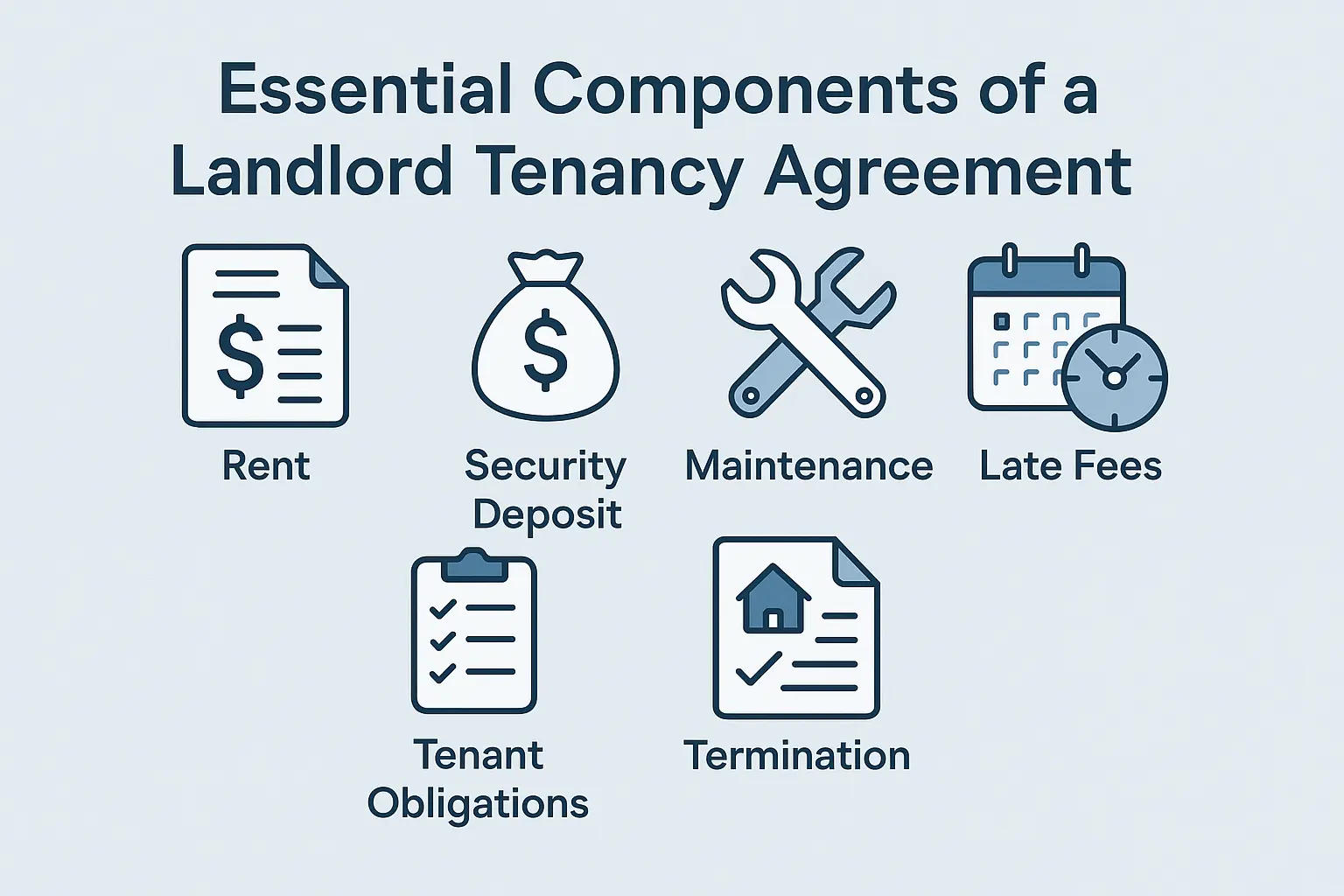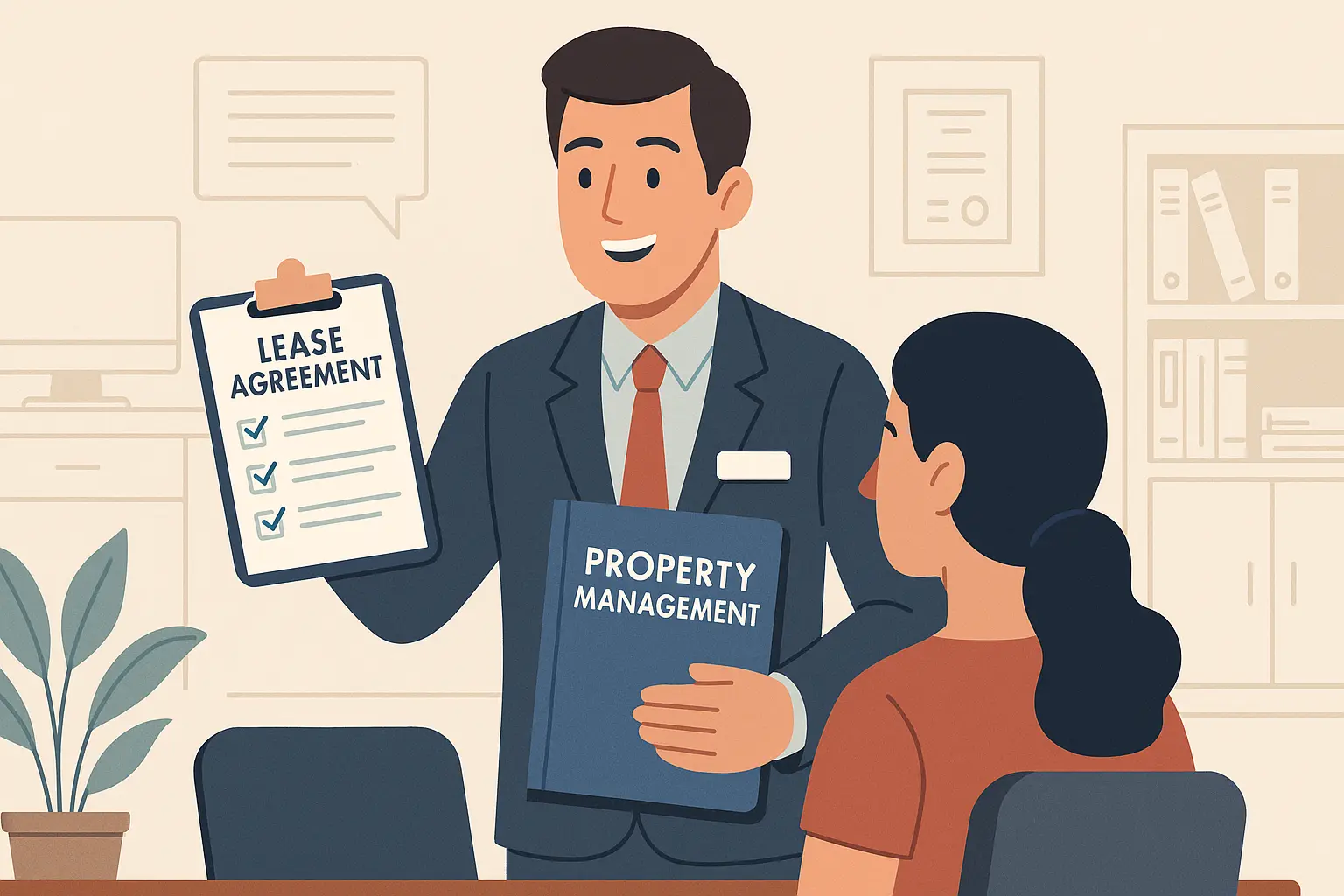The rental market can be tough to navigate, especially for property owners and investors.
A key tool in this journey is the tenancy agreement. It's a vital document that outlines the terms of the landlord-tenant relationship.
But what makes a tenancy agreement the best for landlords? It's not just about protecting your interests. It's also about ensuring compliance with local laws, enhancing tenant satisfaction, and ultimately, making your investment profitable.
In the Atlanta area, this becomes even more crucial. The local rental market has its unique characteristics and regulations.
This article aims to guide you in understanding and crafting the best tenancy agreement for landlords. We'll explore its essential components, benefits, and how it can transform your property management experience.
So, whether you're managing a single-family home or a multi-unit property, let's dive in and make your property ownership journey less stressful and more rewarding.
Understanding Tenancy Agreements
A tenancy agreement is more than just a piece of paper. It establishes a legal foundation for your relationship with tenants.
This document typically outlines rights and responsibilities. Both the landlord and tenant need to adhere to these terms.
In order to be effective, a tenancy agreement must be clear and comprehensive. It should cover essential elements like rent, duration, and maintenance duties.
Here are some key components every landlord lease agreement should include:
- Rent amount and due date
- Security deposit details
- Maintenance and repair duties
- Policies on late payments and evictions
- Lease renewal and termination terms
These components help prevent misunderstandings or disputes. They offer peace of mind by setting clear guidelines from the start.
In the Atlanta area, specific legal requirements may apply. Hence, a well-designed agreement also ensures compliance with local laws and regulations.
Ultimately, understanding tenancy agreements is crucial for maximizing profitability and tenant satisfaction. It builds a framework that supports smooth, hassle-free property management.
Essential Components of a Landlord Tenancy Agreement
A robust landlord tenancy agreement begins with a detailed rent clause. Specify the amount, due date, and payment method. Consistency in financial transactions minimizes confusion.

Security deposit terms follow closely. State the deposit amount, conditions for its return, and where it will be held. This clarity protects both parties and can prevent potential disputes. Make sure it is compliant with your state’s laws.
Next, include maintenance and repair obligations. Outline who is responsible for different types of repairs. This ensures the property remains in good condition throughout the tenancy. In most states, the landlord must be responsible for most items.
Policies for late payments and penalties are crucial. They provide a framework for addressing financial delays. Clearly defined penalties can act as a deterrent to late payments.
Leases should also describe tenant obligations related to property upkeep. Specify standards for cleanliness and necessary care. This keeps the property in optimal condition, benefiting future tenants.
Termination terms are vital in any lease. These clauses should explain notice periods for lease renewal or non-renewal. They ensure both parties understand the process for vacating the property.
Pet policies are common in rental agreements. Specify allowed types of pets, if any, and any additional fees. This clause can prevent potential conflicts and property damage.
Include access rights for the landlord. Conditions for entering the property for inspections or repairs should be explicitly stated. This respects tenant privacy while allowing necessary oversight.
Quiet hours and other community rules contribute to tenant satisfaction. Outline these guidelines to minimize disruptions. Such clauses can improve tenant relationships and retention.
Finally, dispute resolution procedures help manage conflicts. They offer a structured way to address disagreements. This can prevent disputes from escalating into costly legal battles.
Setting Clear Expectations: Clauses to Include
Clearly defined clauses set the tone for tenant relations. Start with specifying the lease term, whether fixed or month-to-month. This clarity helps tenants plan their stay.
Rent increase policies should be included. They inform tenants of possible rate changes during the lease term. Transparency in such matters builds trust.
Include rules on subletting. Clearly state whether it's allowed, and under what conditions. This helps maintain control over who occupies the property. We strongly recommend against allowing subletting.
Lastly, provide a contact list for emergencies. Fast access to emergency services, maintenance, or landlord contact can prevent minor issues from becoming major crises.
Compliance and Legal Considerations in Atlanta
Staying compliant with Atlanta's local laws is non-negotiable. Familiarize yourself with city-specific regulations affecting landlord-tenant relationships. For example, properties within the Atlanta city limits are required to provide an alternative to a traditional security deposit.
Regularly review and update your tenancy agreements to reflect any changes in local laws. This proactive approach can safeguard you against legal troubles.
Finally, consider a professional legal review of your tenancy agreement. Expert insights ensure comprehensive compliance and cover any legal complexities you might overlook.
Benefits of Using a Tenancy Agreement Template
Using a tenancy agreement template can save time and effort. Templates provide a ready-made structure. They ensure all critical elements of the agreement are covered effectively.
A well-crafted template ensures consistency across your rental agreements. Consistency helps in maintaining professional standards. It also simplifies management, especially when managing multiple properties.
Tailored templates can easily be adapted to align with Atlanta's market. They allow for personalization to meet specific property needs. This flexibility ensures your agreements remain both comprehensive and compliant.
Enhancing Tenant Satisfaction and Retention
Tenant satisfaction is key to successful property management. A comprehensive tenancy agreement sets the stage for positive interactions. It clearly outlines rights and responsibilities, reducing conflicts.
Including clauses for maintenance requests ensures timely responses. This proactive approach fosters trust and reliability. Happy tenants are more likely to renew leases.
Open communication through the agreement helps in addressing tenant concerns promptly. By setting clear terms from the start, misunderstandings are minimized. Enhanced satisfaction naturally leads to increased tenant retention.
The Role of Professional Property Management
Professional property management can be invaluable for landlords. Experts handle complex tasks such as drafting tenancy agreements. Their experience helps tailor agreements to specific properties, ensuring coverage of all necessary aspects.

Property managers stay updated with local laws and regulations. They guarantee that agreements meet legal standards and protect landlords from potential issues. This reduces legal risks and enhances peace of mind.
Moreover, property managers assist in maintaining high tenant satisfaction levels. They act as a liaison, addressing tenant concerns promptly and efficiently. This professional oversight boosts tenant retention and overall profitability.
Conclusion: The Impact of a Strong Tenancy Agreement
A well-crafted tenancy agreement is crucial for successful property management. It sets clear terms, reducing misunderstandings between landlords and tenants.
Moreover, a robust agreement provides legal protection and promotes smooth operations. By investing time and effort into creating a strong agreement, landlords can enhance tenant relationships and increase property profitability.


